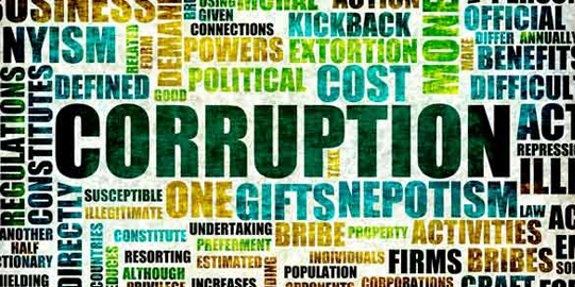When intrepid journalists discovered, two years ago, that South African President Zuma’s home in KwaZuluNatal was being refurbished, there was outrage in that country. Yet again, an African leader had built a palace with tax payers’ money. How could things ever come right on this continent?
Public protector Thuli Madonsela, who by all accounts runs an independent institution of integrity, has now reported that, even if too much money was possibly spent on possibly not the best decisions, there wasn’t really any illegal use of state money. Security for the head of state is a legal expense. The president had not been involved. Public works officials had carried the project. Madonsela said she could understand it if there was a sense of ‘disappointment’ about this.
“It’s too simple to go after the one bad guy who took all the money”
Disappointment there was: journalists and opposition activists are still trying to find proof that ‘Number 1’ is personally accountable. But our Ghanaian colleague, documentary maker and corruption fighter Anas Aremeyaw Anas, would disagree. “It’s too simple to go after the one bad guy who took all the money”, he says. “There is a system that needs to be squeezed.” Anas is writing an essay for ZAM Chronicle on this. We expect it to be much food for thought.
Meanwhile, the Nkandla saga is already proof of a systemic problem. The officials who ordered the refurbishment wanted to be, or stay, in Zuma’s good books. They commissioned it all to please the boss. And this is where Jacob Zuma can be blamed. Presiding over such a system of patronage is a much graver problem than a wall around a palace. (Not that the palace itself is not a problem, too: Zuma should lead by example, and not conform to the stereotype of greed that already surrounds the ruling class in his country.)
A system that rewards people for ‘kissing ass’, rather than for serving the public must be transformed. There has been much talk about ‘transformation’ in post apartheid South Africa, but most of that has been about changing the colour of people in the state and not about transforming the state itself. The same goes for many other inherited colonial state machineries in Africa. They are bad systems. They often don’t encourage the state servants to do a good job and they don’t fire them when they don’t.
Doing your job in such a bad system is draining, it will take a long time before anyone notices your efforts, and even if they notice: if it is in their interest to please their own superior, they will ignore you. In such a system, an underhand method, a person who can help, a personal brilliant idea to ‘fix’ something for a ‘boss’, are infinitely more rewarding.
Zuma is not addressing the state’s broken systems; not checking what goes wrong and where and why; not addressing values of right and wrong, of good work and bad work. He talks of corruption only in speeches. Meanwhile, nobody is helping the battling civil servants at the bottom to find ways to get things done. Nobody is rewarding them if they try.
Again, this is not typical for South Africa.
“It is very difficult not to be corrupt in Nigeria”, a colleague from that country explains. “If you don’t want to steal like the others, you’ll make enemies.” Nevertheless, perhaps miraculously, there are state services and projects in Nigeria that get executed properly. About 40 percent ‘really works’, reports the colleague. “Maybe if we understand how that happens, we will know how to fix the other sixty percent.”


